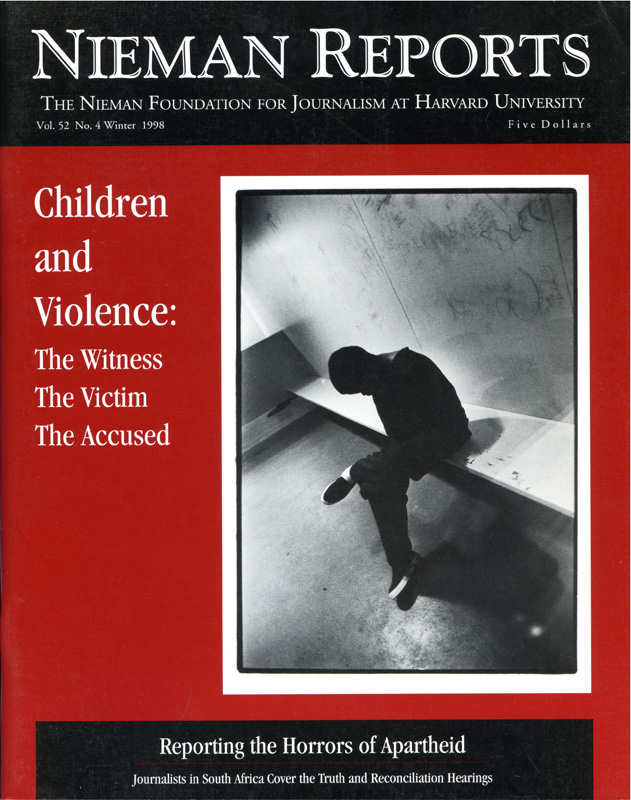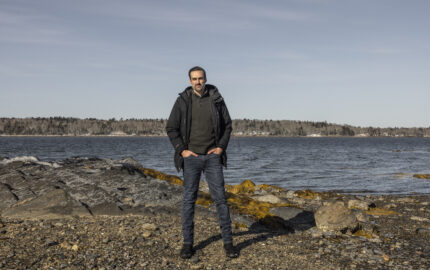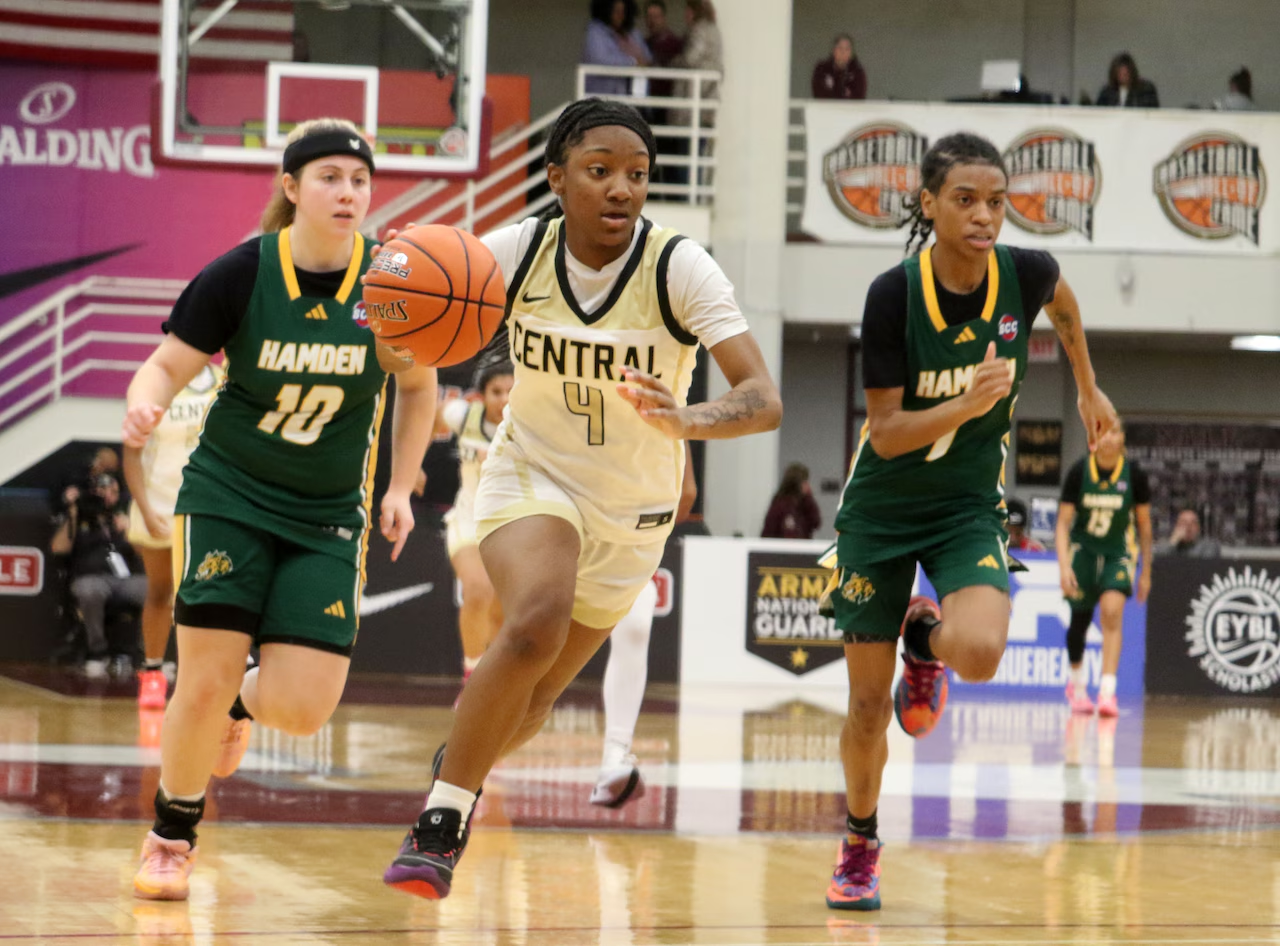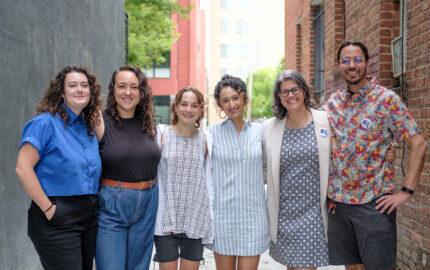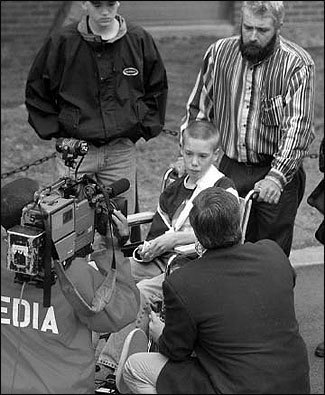
Tristan McGowan, an injured seventh grader from the Westside Middle School, is pushed from the hospital by his grandfather, Bill McGowaned, after being released from the St. Bernard’s Regional Medical Center. Photo by Bill Templeton/The Jonesboro Sun.
While I lay no claims of being a prophet, during the days after the Westside Middle School shootings in Jonesboro, I remarked, “This will happen again.” I knew that if four students and a teacher could be gunned down and five others wounded by two children here, then it could happen anywhere. Only a few weeks later a student entered the cafeteria at a Springfield, Oregon school and sprayed bullets at classmates.
Westside was the last place I would have expected boys 11 and 13 to carry out a well-planned and somewhat sophisticated massacre. The youths, Andrew Golden and Mitchell Johnson, were more or less typical boys—no major problems had been noticed before the shootings, although in hindsight some disturbing tendencies were recalled.
Westside Middle School is located just west of the Jonesboro city limits. About one-third of the students are residents of Jonesboro, a town of about 54,000. The others live in smaller towns a few miles away or on nearby farms. The school district is predominantly blue collar, with a few of the students from wealthy farm families and a few from families with incomes below the poverty line. The school gets high academic ratings, and annually students score in the top percentile on achievement tests. The number of minority students is fewer than one percent.
When the unthinkable happens, as it did for us on the morning of March 24, 1998, it puts a strain on any community and any newspaper. The entire community feels victimized. The children who were the shooters and those who were the victims were part of our community, and having this horrible outbreak of violence happen in our backyard made it more difficult to comprehend.
RELATED ARTICLE
"The Freedom Forum’s Critique of The Sun’s Reporting on the Westside Shootings"At The Jonesboro Sun, we immediately decided to treat our entire community as victims and cover, as best we could, the ways in which members of our community were responding to the tragedy. That did not mean that we would try to cover up any of the details of the shootings or the legal maneuvers that followed, but we would also try to steer away from pop psychology and stick to hard facts.
I think this comprehensive approach of coverage, including learning about the feelings of individuals with no direct ties to the shootings, was important. Members of the community needed a vehicle by which to express horror and act on their desire to do something to help out.
Now that some time has passed, I am not sure how the Westside tragedy has affected our general coverage of youth crime. But we are running more positive stories about the activities of young people. Actually, youthful crime and violence has decreased in this area in recent years, which is something we reminded readers of in the course of covering this school shooting, and most of the teenage violence that does occur can be tied to drug use. Of course, the problems of adolescent drug use are not unique to Jonesboro.
During the days following the shootings at Westside, we tried to contact the families of the shooters and victims alike and get their perspectives. We talked at length to the family of Andrew Golden and to the divorced father of Mitchell Johnson, who came from Minnesota with lawyer in tow after the shootings. During those early days Gretchen Woodard, mother of Mitchell Johnson, was angry with The Sun over a story we had run quoting students about things that her son had done. Later she talked to us at length, and we developed a good relationship.
If there are any lessons to be learned from this tragedy, they are to assume nothing and report fully, letting the chips fall where they may. Remember, too, that all citizens of the community feel violated and many want an opportunity to be heard.
Nobody knows—except perhaps court-appointed psychiatrists that have examined the shooters—why Westside happened. There are no obvious answers. The usual suspects—availability of guns, too much violence on TV, violent video games, etc.—can be trotted out, and in this case they were.
What I can say with some certainty is that it will happen again in a place that residents believe is the last place on earth in which such a tragedy could take place. And when it does, those whose job it is to determine what is newsworthy and beneficial to that community vs. the kind of news that might sell a few more newspapers but lessen the standards that are our lifeblood will be put to the test. It’s a test, I think, we passed.
John W. Troutt Jr. is Editor of The Jonesboro Sun in Arkansas.
